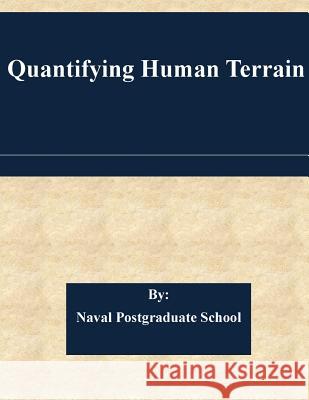Quantifying Human Terrain » książka
Quantifying Human Terrain
ISBN-13: 9781511557009 / Angielski / Miękka / 2015 / 92 str.
Operational commanders in Iraq and Afghanistan have identified a socio-cultural capabilities gap. Historically, when faced with a non-Western adversary, knowledge of the adversary's asymmetric socio-cultural values has been a key component in achieving conflict resolution. As such, a number of organizations within the U.S. government and civilian sector have undertaken initiatives to quantify what has been termed human terrain. Multiple theories, concepts, and models reside within the confines of social sciences that describe human activities, interactions, and behavior. One organization in particular has developed methods to quantify human terrain. The organization has been able to responsively fuse a wide array of different sciences, technology, and information systems to provide cohesive products to operational commanders. Utilizing a systems approach, the organization was examined to identify methods and techniques that describe and enumerate geo-spatial, socio-cultural relationships and interactions. The identification of unique system variables is the key element in replicating the organization's capabilities. By reproducing these critical variables other U.S. Government and non-government organizations can leverage the examined organization's methodology and produce similar results for analyzing and quantifying complex, human-centric problems regardless of the actual geographical location of interest.
Zawartość książki może nie spełniać oczekiwań – reklamacje nie obejmują treści, która mogła nie być redakcyjnie ani merytorycznie opracowana.











